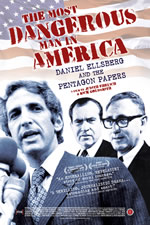The Power of Focused Titles in Biographical Documentaries
There were more biographical documentaries at the 2010 Sundance Film Festival than I’ve ever noticed before. I counted five biopics among the 16 films in the U.S. documentary competition.
The problem with many biopics that never make it to broadcast, and the genius of those that do, often comes down to how skillfully the documentary focuses on the key events in a person’s life. Rather than trying to chronicle every seemingly significant event in the lifespan of your subject, consider focusing on a few key events that shape your subject’s character, define their overarching quest in life, and portray their contributions to the world.
Often these key events are hinted at in the film’s title. For example, this year’s Academy-nominated documentary The Most Dangerous Man in America: Daniel Ellsberg and the Pentagon Papers, clearly focuses on key historical events in the early 1970’s during the Nixon administration. Likewise, the documentary title Tell The Truth and Run: George Seldes and the American Press, alerts us to the particular controversy surrounding this blacklisted journalist.
In my own PBS documentary, I Shall Not Be Removed: The Life of Marlon Riggs, the title foreshadows the focus of the film: Riggs’ struggle to leave a legacy before succumbing to AIDS.
The documentary film Joan Rivers – A Piece of Work, which premiered at Sundance last week, takes another tack in its title. Rather than focus on the key event, the title suggests something about the subject’s character. In this case, we get a sense of River’s wry and outrageous personality. In Jean-Michel Basquiat: The Radiant Child, the title evokes the subject’s favored cult status, as a young friend of Andy Warhol and painter for such celebrities as Deborah Harry.
When launching a powerful biopic, consider this tip from veteran editor Ken Schneider. Rather than spend precious time in the beginning scenes of your biography recounting your subject’s early life, find a “representative anecdote that informs the life and work” of your subject. Schneider points to the documentary Waldo Salt: A Screenwriter’s Journey, about the famous Hollywood scriptwriter who created characters searching for affection. The “representative anecdote” in this documentary focuses on Salt’s mother and father failing to provide young Waldo with adequate affection. This key scene launches Salt’s life long efforts to write characters who sought what he himself had missed out on in life.
To learn more about structuring character-driven documentaries, check out the highly-rated seminar, “Editing the Character-Driven Documentary” at https://newdocediting.com/products/.
